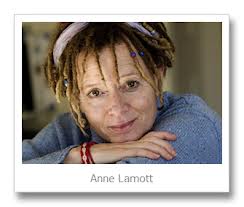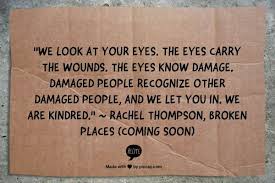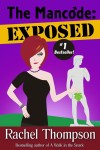Great to have BestSelling author and social media expert Rachel Thompson as a guest on DyingWords. I follow Rachel on her sites, BadRedHeadMedia and Rachel in the OC, and love her No-BS style. She generously agreed to share some thoughts on writing.
 I noticed an extremely talented writer friend hadn’t blogged for awhile, so I checked in on her last night. She decided to take a break due to some harsh comments from those supposedly ‘in the know,’ and was taking time to lick her wounds and hadn’t written in months. I am a true fan, and was shocked to see her so affected. But I could relate.
I noticed an extremely talented writer friend hadn’t blogged for awhile, so I checked in on her last night. She decided to take a break due to some harsh comments from those supposedly ‘in the know,’ and was taking time to lick her wounds and hadn’t written in months. I am a true fan, and was shocked to see her so affected. But I could relate.
Been there, done that. I gave her this advice: ‘Screw ‘em. Trust your voice. They’re jealous of your amazing talent, and by silencing you, they are somehow feeling better about their lack of it.’
Write, my dear friends. Ignore what THEY say. Trust your voice, believe in yourself. You are amazing.
‘YOU CAN’T WRITE’
 I’ve been there. Someone I respected, who was ‘in the know,’ told me that my work wasn’t ‘ready for publication, was boring, that nobody would read it.’ So, I walked away from that situation. Doesn’t matter who that person is. What’s important is that I listened, I let it affect me, and I crawled into a dark, gray hole. For a nanosecond.
I’ve been there. Someone I respected, who was ‘in the know,’ told me that my work wasn’t ‘ready for publication, was boring, that nobody would read it.’ So, I walked away from that situation. Doesn’t matter who that person is. What’s important is that I listened, I let it affect me, and I crawled into a dark, gray hole. For a nanosecond.
SO I WROTE ANYWAY
 And then completely ignored this person’s advice, wrote Broken Pieces, the book this person said nobody would read, because I trusted my voice. And it not only changed my life, it also connected me to so many amazing survivors, writers, readers, bloggers, reviewers…to PEOPLE I likely would never have otherwise met.
And then completely ignored this person’s advice, wrote Broken Pieces, the book this person said nobody would read, because I trusted my voice. And it not only changed my life, it also connected me to so many amazing survivors, writers, readers, bloggers, reviewers…to PEOPLE I likely would never have otherwise met.
LET PEOPLE HELP YOU
Your first draft is going to be awful. Terrible. Shit. So what? You’re no different than…
Ernest Hemingway: “The first draft of anything is shit” or
 Anne Lamott: “Almost all good writing begins with terrible first efforts. You need to start somewhere. Start by getting something—anything—down on paper. What I’ve learned to do when I sit down to work on a shitty first draft is to quiet the voices in my head.”
Anne Lamott: “Almost all good writing begins with terrible first efforts. You need to start somewhere. Start by getting something—anything—down on paper. What I’ve learned to do when I sit down to work on a shitty first draft is to quiet the voices in my head.”
I personally refer to my first drafts as ‘word vomit.’ The problem, I’ve discovered, is that most new writers try too hard to make their writing perfect on the first try (impossible, I tell you!), so that when they receive criticism (and they will), they crumple. I was no different. So…what to do?
Blogging helps. Share your writing.
 But when it comes to getting ready for publication (no matter which direction you take), hire a writing coach, or a professional editor, someone who knows about writing and does this for a living. Not your Aunt Edna who used to correct English papers back in the day.
But when it comes to getting ready for publication (no matter which direction you take), hire a writing coach, or a professional editor, someone who knows about writing and does this for a living. Not your Aunt Edna who used to correct English papers back in the day.
You are too close to it to edit your own work. And by edit, I do not mean grammar and proof — no, no, no. I mean structural edits — looking at the entire content and seeing what flows, what fits, what doesn’t, what needs revision, what needs to be cut.
BUT I HAVE NO MONEY!
 Gosh, if I had a nickel for every time I’ve heard this, I’d be rich by now. I get it, I do. I’m there, too. But guess what? Your book will not sell if it’s riddled with errors. You cannot afford not to hire a professional. Would you do your own heart surgery? No.
Gosh, if I had a nickel for every time I’ve heard this, I’d be rich by now. I get it, I do. I’m there, too. But guess what? Your book will not sell if it’s riddled with errors. You cannot afford not to hire a professional. Would you do your own heart surgery? No.
Besides, there are terrific options now: crowdfund using Pubslush (a crowdfunding platform just for book projects), look at Bibliocrunch (find quality professionals for your book publishing needs within your budget), barter services, whatever! Make it happen.
Point is this: writers write.
Don’t let anyone influence you about you. Trust your voice. Protect it, above all else.
Figure the rest out later.
“Express yourself, don’t repress yourself” ~ Madonna (Human Nature)





Thanks for those encouraging words. When all we see is a writer’s published work, we don’t see all the struggles and doubts the author went through before that writing got into its published form.
You’re so right, Barbara. It’s probably only other writers who truly appreciate the hours and effort that goes into the final published product.
This is a relief to read, Rachel. Writing isn’t for the faint of heart and I’m so glad you put your books out there after all you went through.
~Laurie Kozlowski
I hope it’s not touchy-feely or TOO much of a stretch to say this general principle applies well whether one is a writer or not. The balance between being willing to truly hear and receive constructive criticism and being destroyed by those who would only tear you down is a difficult one – but it’s crazy important if we’re ever going to get better at… anything.
Love this. Nice piece.
Hi and thanks for reading and commenting Blue. I do believe we need criticism to grow — and to learn how to tell true criticism from mean-spirited tearing down. Some people don’t want others to succeed for whatever reason. Or maybe the people who tear us down truly believe they ARE helping us.
I often look at how Gordon Ramsey teaches his staff on ‘Hell’s Kitchen’ (keeping in mind it’s a TV show and ratings etc). I don’t agree with his tactics completely, but his standards are so incredibly high, they seem impossible. How can one ever achieve that level? But they do, because he sets the bar so high, and he teaches them. That’s the ticket — he teaches.
So if we can learn from criticism, GREAT! Our job is to learn when we can learn. Thank you for your insights!
I truly thank everyone for reading this blog and commenting. We all need to connect, learn, and get feedback – good & bad – regardless of our craft.
I look at life like a training exercise – in order to improve, we need to be instructed and critiqued on what’s working and what isn’t. In my twenties I was fortunate to be trained by an outfit who’s motto is ‘Who Dares Wins’ – but really was ‘Who Trains Wins’. A great deal of the training was in building mental toughness to handle brutal criticism and outright rejection. They looked to weed out quitters and some of the instructors played the total troll role. Like Rachel’s example, the bar was constantly raised and, to survive, we banded together and played our strengths. We would never have made it on our own. Being team players, absorbing good instruction, and deflecting bullshit was the key to survival.
I think the writing world is more difficult. We’re on our own & have to self-discipline – yet we long to belong and learn. Praise is wonderful, but it can be a false prophet. Criticism is harsh, but as long as it’s legitimate, it can be the best learning tool. To survive, writers must connect with other writers and honestly critique one another.
There are so many reasons for a writer not to write and it’s so easy to give in them. There are even more reasons for a writer to write and it’s helpful to be reminded to just write. I’m not writing a book yet but i’ll remember your points about first drafts for the writing road.
Thanks for sharing this post on twitter.
I think it comes down to discipline. Once you commit to a block of time, then it becomes easier to be productive rather than procrastinating. I also find editing to be far easier than creating new content, but others just loathe editing. Different strokes for different folks. Thanks for your comment!
thanks for reading, Novice Mom! We all start somewhere, right? It’s a matter of taking those ideas and watching them grow from a kernel in our brain to the page, to chapters, to books that’s the fascinating process. It still amazes me, and I still feel like a novice, every time.
I agree with Garry also, that the true brilliance of a book is found in the editing. I would never have learned that if I hadn’t gone through it with my first book. It was truly life-changing for me. It’s not fun LOL, but it is where we find our gems.
Good luck!
So true! No one could make me ever stop. It’s in my blood, my soul. I wouldn’t be me without writing. Recently I heard Jim Frey refer to writing as “an illness”, because writers need to write. They don’t feel good when they’re not writing and when they’re down they write to chase the blues away. I find this to be true. There’s no better medicine when life knocks you down. As you say, writers write, plain and simple.
Somedays are more productive than others. I wonder what an average writer’s average daily word count is. I’m really happy with 2500 – 3,000 🙂 Let’s hear what others feel satisfied with.
I tend to write very fast. One of my novels I wrote in three weeks, but that was writing every day, all day. I’ve never really been concerned with word counts. I know that’s not the norm, but to me, it just adds pressure. 2500-3000 words per writing session would satisfy me. Some days, though, ideas come so fast I can hardly keep up. I love those days!
Those are the shitty best drafts that stick 🙂
Hi Sue, and thanks for reading. Writing is in our soul, and it’s a wonderful thing. Sometimes, it’s all that saves us from the dark. I know I’ve felt that.
For so many new writers, they are looking for perfection. They are afraid of writing crap. I was no different. At this point in my career, I’m okay with that, because I know that nobody has to see the crap. I have developed my own ‘crap-dar’ and if it’s awful, it stays on my computer or in my moleskin. Sometimes, I’ll send it to my editor and she’ll say, ‘Oh, well, maybe these 10 words can be salvaged’ and that’s okay because it’s a start!
Thanks again for sharing your insights!
Ha! My first novel will never see the light of day because, as you say, it’s on my “crap-dar”. My fourth… way better!